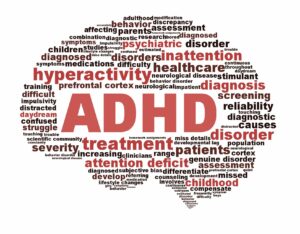.Do you or someone you know struggle with ADHD? Have traditional treatments not been enough to manage symptoms effectively? Enter combination therapy. This innovative approach combines the use of medication, behavioral therapy, and lifestyle changes to create a personalized plan for managing ADHD. In this post, we’ll dive into all things combination therapy – what it is, how it works, and if it’s right for you. Get ready to learn about an exciting new way to take control of your ADHD symptoms.
Contents
What Is ADHD?

ADHD, or Attention Deficit Hyperactivity Disorder, is a neurodevelopmental disorder that affects both children and adults. It is characterized by a persistent pattern of inattention and/or hyperactivity-impulsivity that interferes with daily functioning and development.
The symptoms of ADHD can vary, but typically include difficulty paying attention, forgetfulness, being easily distracted, difficulty following instructions or completing tasks, frequent procrastination, impulsivity, difficulty waiting or taking turns, and excessive physical activity or restlessness.
What is Combination Therapy?
Combination therapy is a type of treatment for ADHD that involves using more than one method to manage the symptoms. This may include medication, behavioral therapy, and/or other types of support. The goal of combination therapy is to provide symptom relief while also addressing any underlying issues that may be contributing to the disorder. By using multiple approaches, combination therapy can help people with ADHD improve their functioning in all areas of life.
How Does Combination Therapy Help with ADHD?

Combination therapy can be an effective approach to treating ADHD by addressing the multiple aspects of the disorder, including inattention, impulsivity, and hyperactivity.
The most commonly used therapies in combination with ADHD are medication and behavioral therapy. Stimulant medications such as methylphenidate and amphetamine can help reduce hyperactivity and impulsivity, while also improving attention and focus. However, medication alone may not address the emotional and behavioral aspects of ADHD, behavioral therapy can address these thoughts
Behavioral therapy may include cognitive-behavioral therapy (CBT) or psychotherapy, which can help individuals with ADHD develop coping strategies, improve social skills, manage emotions, and reduce negative thoughts or behaviors. Lifestyle changes such as exercise, a healthy diet, and consistent sleep patterns can also be beneficial in managing symptoms of ADHD.
Combination therapy for ADHD can help moderate to severe cases, and for individuals who have not responded well to single treatments alone. The specific combination of treatments used will depend on the individual’s symptoms and needs and can adjust over time as their condition changes.
Overall, combination therapy can be an effective treatment approach for managing the symptoms of ADHD and improving the overall quality of life. However, it is important to work closely with a healthcare professional to determine the best course of action and to monitor for any potential side effects or complications.
Pros and Cons of ADHD Combination Therapy

There are many forms of treatment available for attention deficit hyperactivity disorder (ADHD), and no one approach is right for every individual. Some people with ADHD may benefit from a combination of therapies, including medication and behavioral therapy.
The Pros:
1. Medication can help reduce symptoms of ADHD, such as impulsiveness and hyperactivity.
2. Behavioral therapy can teach strategies for dealing with ADHD symptoms, such as how to better focus on tasks and control impulsive behavior.
3. Combining medication and behavioral therapy may provide greater symptom relief than either approach alone.
The Cons:
1. Medication can have side effects, such as dry mouth, loss of appetite, trouble sleeping, or mood swings.
2. Behavioral therapy requires time and effort to learn new skills and practice them regularly.
3. Combining different types of therapy may be expensive and may require coordination between multiple providers.
Conclusion
Combination therapy for ADHD can be an effective way to manage the symptoms of this condition. A combination of different treatments and strategies such as therapy, lifestyle changes, medication, or supplements can help you gain better control over your symptoms and improve your quality of life. Before beginning any type of treatment plan, you must consult with a professional who can help create a tailored plan to meet your individual needs. With the right combination therapy approach in place, you may find yourself living a fuller life without the struggles associated with ADHD.
For more information, please contact MantraCare. ADHD is a neurodevelopmental disorder characterized by difficulty paying attention, hyperactivity, and impulsivity. If you have any queries regarding Online ADHD Counseling experienced therapists at MantraCare can help: Book a trial ADHD therapy session.


